Once a year, Luke Jensen hangs up his suit, switches off his mobile phone and disappears on a 10-day solo trekking expedition.
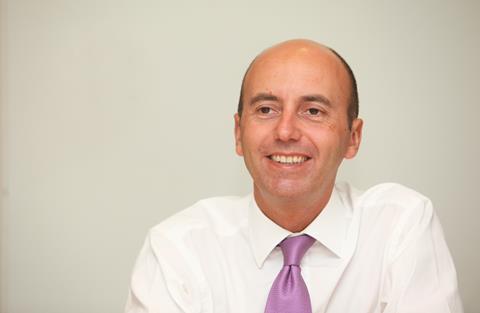
He’s already scaled mountain ranges such as the Pyrenees, taken in sections of Camino de Santiago – a network of ancient pilgrim routes converging in Spain’s Santiago de Compostela – and Canada tops his wish list of destinations for 2018.
“My Zen getaway”, he dubs the purpose of the annual trip. A chance to “switch off completely to allow me to stay switched on for the rest of the year”.
Over the past 12 months, though, Jensen has been focused on conquering the globe in a completely different manner, as the boss of Ocado’s technology and logistics division, Ocado Solutions.
When the former Sainsbury’s executive first set foot into the online grocer’s Hatfield head office last February, Ocado was seemingly flailing in its bid to license its much-vaunted automated warehouse equipment and expertise to international retailers.
The deadline set by founder and group chief executive Tim Steiner to sign a maiden deal had long since passed and observers started to question the very validity of Ocado’s business model and its share price was stagnating.
New partnerships
Fast forward a year and, despite cautioning on 2018 profits when updating the City yesterday, the outlook is markedly different.
Ocado Solutions – soaking up the capital expenditure that is expected dent profitability in its current financial year – has penned partnerships with French grocery giant Casino and Canada’s second-largest supermarket operator Sobeys.
The group’s share price has rallied, nigh on doubling since the morning of November 28, 2017 – the day details of its first major deal, with Casino, were revealed to the City.
Although Jensen has been at the heart of those transformational tie-ups – he spent 30 hours in the air last week alone jetting to various negotiations – he is humble about his role in signing the duo of deals.
“A lot of things have come together at the right time”
Luke Jensen, Ocado Solutions
In his first interview since taking the Ocado Solutions hot seat, Jensen tells Retail Week there has been an “awakening” among grocery retailers worldwide about the need to create profitable and efficient online businesses.
“A lot of things have come together at the right time,” he says, pointing to the impact of Amazon’s shock acquisition of Whole Foods and the opening of Ocado’s third warehouse in Andover – the first to feature its most innovative proprietary technology.
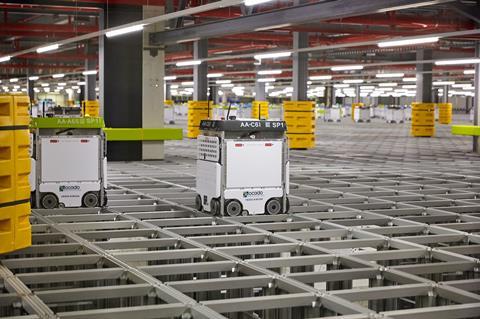
It is here, in the unlikely surrounds of the quiet North Hampshire town, that Jensen invites Retail Week to see the Ocado Smart Platform in action.
Hundreds of robots dart around on the roof of a three-dimensional chessboard-like structure, stopping on desired squares of the steel cube to pick up grocery-filled totes stacked beneath them.
Ocado’s patented communication technology “talks” to the robots 10 times per second, directing them to totes and picking stations, where warehouse staff will assemble customer orders.
“It’s the ballet of the bots,” Jensen muses, as he looks out onto the football-pitch-sized “hive” swarming with robots buzzing around at speeds of four metres per second, avoiding collisions by just 5mm.
After years of scouring the globe for grocery partners, seeing such a performance first-hand within the 237,000 sq ft facility has finally got overseas retailers dancing to the Ocado tune.
Jensen, whose efforts were rewarded with a seat on Ocado’s group board last week, explains: “I’ve spent about a day a week here, but the level of interest from retailers around the world is enormous. If we hosted them all, I’d be here six days a week.
“It’s one thing us building the technology and thinking ‘this is great and it works’, but having due diligence teams from some of the biggest and best retailers in the world here pulling it apart from top to bottom and saying ‘yes this can work in our market’ is a nice validation of what we’re doing.
“Everyone is seeing the level of online penetration in other product categories and saying ‘if people do it well in grocery, it will happen in grocery’.
“That’s what the UK has demonstrated. When you have supply, availability and it’s offered at attractive prices for home delivery, people will take it up.”
Fighting Amazon
If the opening of the Andover warehouse has been pivotal in Jensen’s deal-making discussions, Amazon’s $13.7bn splurge on Whole Foods instilled a greater sense of urgency among prospective partners.
“There’s no doubt that the threat of Amazon is on the minds of every single grocer around the globe,” Jensen admits.
“Amazon has been working on grocery for a long time, which indicates how difficult it is to do grocery. If it were that easy, Amazon would have made big inroads already.
“But buying Whole Foods was a big signal to the world of its seriousness. That leaves any boardroom of any major grocer around the world asking: ‘What’s the viable solution to deliver online? How can I deliver a great omnichannel proposition that is economically viable?’”
For all the criticism levelled at the business in the past, Ocado believes its technology is fast emerging as the answer to that conundrum.
The online grocer took 15 years to turn its first profit – and although it registered another jump in retail EBITDA in full-year results unveiled on Tuesday, group profits were flat as a result of its ongoing drive to further improve its automated warehouse expertise.
Jensen argues that, over the past two years, that innovative platform has established Ocado.com and Morrisons – its sole UK partner – as the fastest growing online food retailers.
And he maintains that the centralised picking model it operates – created, maintained and constantly enhanced by a crack team of 1,200 software developers and 200 mechanical engineers – delivers “superior economics and superior service” to the store-pick alternative run by its competitors.
Looking abroad
The opportunity overseas, then, could be vast.
Around 7.5% of all groceries sold in the UK are transacted online, but other markets at present lag behind.
In France and Canada, where Ocado’s partners operate, the figures stand at just 4% and 1% respectively, but are a shoo-in to grow.
“Fundamentally, we are helping retailers solve one of the biggest strategic problems that they are going to have over this generation of management”
Luke Jensen, Ocado Solutions
“Fundamentally, we are helping retailers solve one of the biggest strategic problems that they are going to have over this generation of management,” Jensen believes.
“It’s anyone’s guess as to what the ultimate penetration of grocery online is going to be. In the UK, it’s 7.5% and growing. The latest forecast I saw was that in the US it could reach 20%. Whatever it ends up at, it’s going to be material.”
Unsurprisingly, the US therefore ranks highly on Jensen’s hit list of markets he wants to enter next.
But, intriguingly, he refuses to rule out the prospect of signing up another British-based grocer to the Ocado Smart Platform.
The latest iteration of its deal with Morrisons – the Bradford-based grocer will take capacity in Ocado’s fourth and largest warehouse in Erith, Southeast London, when it launches this year – opened the door for Ocado to join forces with grocers outside the big four.
It sparked speculation that Marks & Spencer, Aldi or Lidl could harness Ocado’s expertise to launch online.
“I’d never rule anything out that we’re not restricted from,” Jensen says coyly.
“The fact we are a grocer ourselves creates a different conversation. We understand what it means to trade a business, rather than just being a provider of technology and warehouse automation”
Luke Jensen, Ocado Solutions
“But there is a peculiarity in the UK versus other countries because we are also a player in the market. That puts us in a slightly different position because we’ve got two areas of focus in the UK – making Ocado.com a success and making Morrisons a success. That’s already plenty to do.”
Given that scenario – and the aim of Ocado to become, as Jensen puts it, “a global solutions provider for ecommerce” – could its grocery business eventually become an unwanted distraction from its technology ambitions and be offloaded?
Following whispers in the City last year that Amazon was mulling a bid for the business, the question draws a wry smile from Jensen.
“It’s certainly not a distraction, it’s on the contrary,” he asserts.
“From a tech point of view, it’s the biggest live lab you can imagine. It’s a great combination to have and there is a lot of synergy between the two.
“When I’m talking to grocers around the world, the fact we are a grocer ourselves creates a different conversation. We understand what it means to trade a business, rather than just being a provider of technology and warehouse automation. That works well and there is no reason to separate them.”
A winning combination
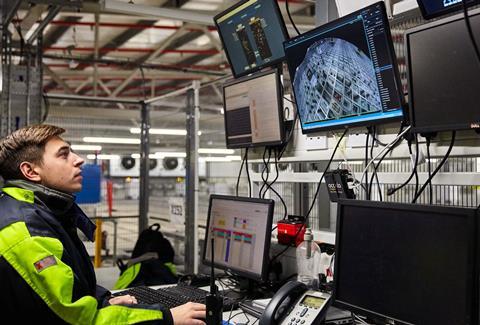
Jensen believes that combination will prove a winning one in its domestic market, despite the rapid pace of change that is reshaping the industry.
Sainsbury’s has acquired Argos for £1.4bn to beef up its general merchandise and fulfilment credentials, Tesco is poised to complete its £3.7bn takeover of Booker in the coming weeks to extend its reach into convenience and foodservice and Morrisons is leveraging its vertically integrated model to build a £1bn wholesale business.
“It has been a tough few years for the grocery market and that forces people to think creatively and strategically about what they can do,” Jensen observes.
“The smart grocers have been pretty good, over the years, at changing their businesses and adapting their businesses to new market conditions. Because markets are changing fast due to online, retailers are having to adapt more.”
Drilling down into the example of former employers, Jensen adds: “Sainsbury’s is a fantastic grocery business and it’s been smart and forward-thinking with a lot of what it’s been doing. The limits of that are that it’s difficult for any single grocer to also be a best-in-class tech business.
“Ocado is a best-in-class tech business. It focuses entirely on that, it doesn’t have 1,000-plus shops to run so it does things quite differently.
“I think we are going to continue to see change in the market, we will continue to see action, we will continue to see vibrancy. But Ocado has consistently gained share in the grocery online market and we are confident of our continued growth.”
“We’ll let the analysts write whatever they want to write and guess whatever they want to guess”
Luke Jensen, Ocado Solutions
Jensen and Ocado are not content with resting on those laurels, though, or taking pleasure from making some analysts eat their words – at least prior to Tuesday’s profit warning – through the traction Ocado Solutions is gaining.
“Our business isn’t about proving people wrong,” Jensen proclaims. “It’s about doing the job at hand – taking the best technology in the world and bringing it to other retailers. That’s now happening.
“We’ll let the analysts write whatever they want to write and guess whatever they want to guess.
“The fact that we have done two deals within this timeframe is a demonstration that there is demand, and there will be more to come.”
With a passionate and determined Jensen at the helm, it would take a brave person to bet against him and Ocado Solutions globetrotting into more new markets in the coming years.




















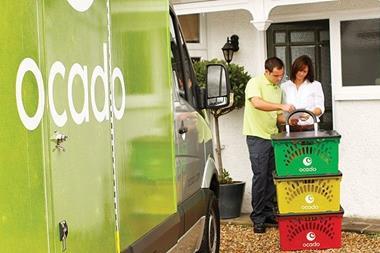
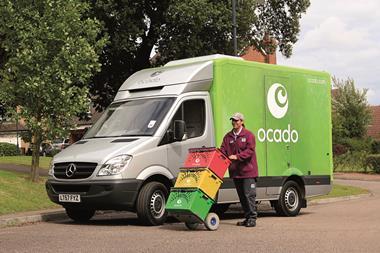

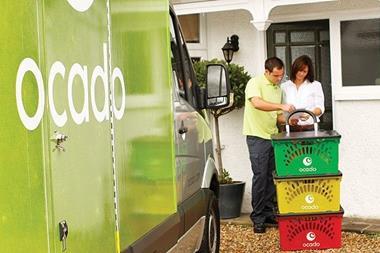
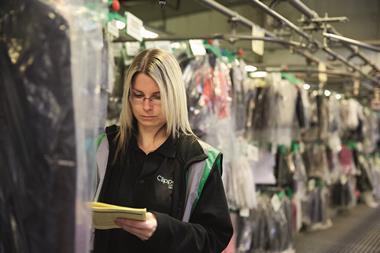
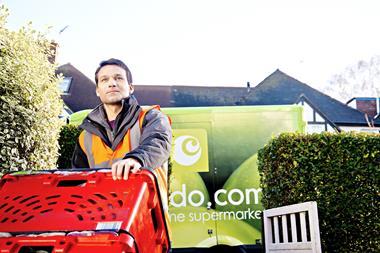
No comments yet